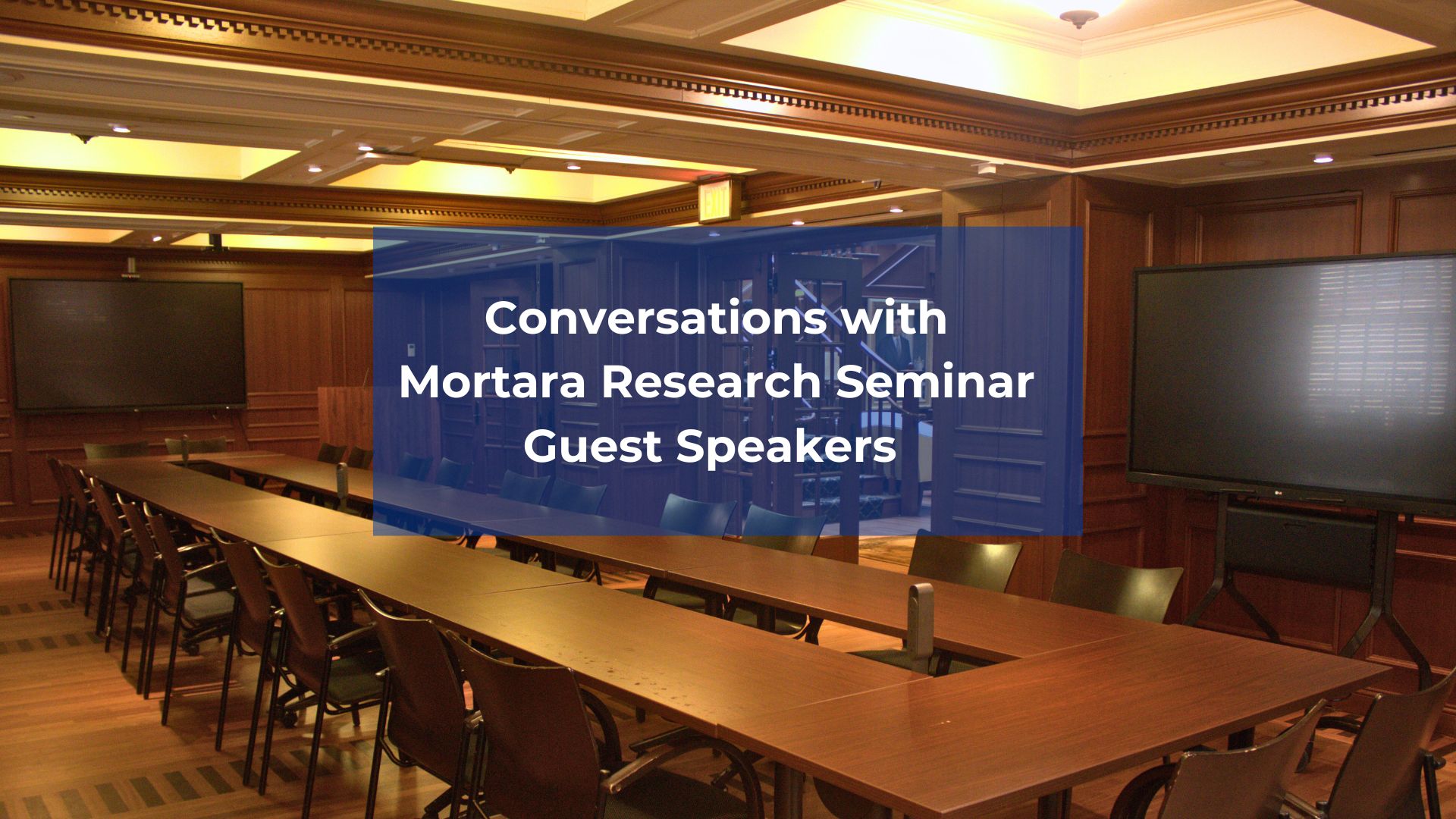Mortara Research Seminar – A Conversation with Professor Allison Carnegie
By Anna O’Sullivan (SFS ’28) —
On Monday, October 21st, the Mortara Center welcomed Professor Allison Carnegie of Columbia University for the weekly Mortara Research Seminar. The seminar serves as a space where Georgetown faculty, selected students, and visiting scholars exchange ideas and engage deeply with works-in-progress in international relations and comparative politics. Professor Carnegie, a leading scholar of global governance, presented her book Global Governance Under Fire: Reform and Resilience in the Age of Populism, co-authored by Professor Richard Clark of the University of Notre Dame.
Professor Carnegie began her studies at the University of Southern California, majoring in English and philosophy. At the time, she was unsure of her future path and considered journalism before working in healthcare consulting. She then decided to attend graduate school at Yale, where she discovered a passion for political science. At Yale, she studied under Professor Mike Ting, who introduced her to the world of academic research and encouraged her to pursue questions about institutions and political behavior that would later define her career.
Discussing the process of writing Global Governance Under Fire, Professor Carnegie explained that the book began as a series of separate papers that gradually revealed a shared theme. As she wrote, she found that each piece contributed to a larger conversation about how global institutions respond to populist pressure in an era of political upheaval. In her book, Professor Carnegie explores four primary methods that international organizations use to minimize the effects of a populist leader’s pushback against their policies, which often challenge their authority and legitimacy. Using both qualitative and quantitative methods, she finds that these institutions are not passive victims but instead develop strategic ways to maintain influence and cooperation. Her work highlights the quiet resilience of global governance structures even as they face growing political hostility. Writing this book allowed her to explore these ideas more freely and creatively than individual articles had permitted. The informative seminar concluded with a Q&A, where graduate students and professors had the opportunity to discuss the research in further detail.
Outside of her scholarship, Professor Carnegie reflected on her time in Washington with appreciation, describing the city as vibrant and easy to navigate. When asked what drew her to present at the Mortara Center, Professor Carnegie spoke warmly about her connections with Georgetown’s faculty and her appreciation for the community of scholars who participate in these seminars. She described the environment as welcoming and intellectually stimulating and noted that she always enjoys visiting Washington, D.C. She mentioned meeting with colleagues, enjoying the local energy, and taking advantage of the metro system. The event concluded with thoughtful discussion and questions from faculty and students, who praised both her intellectual range and her approachable perspective on academic life. Professor Carnegie’s talk offered insight not only into the challenges facing global governance, but also into the winding, human path that leads to a life in academia.


